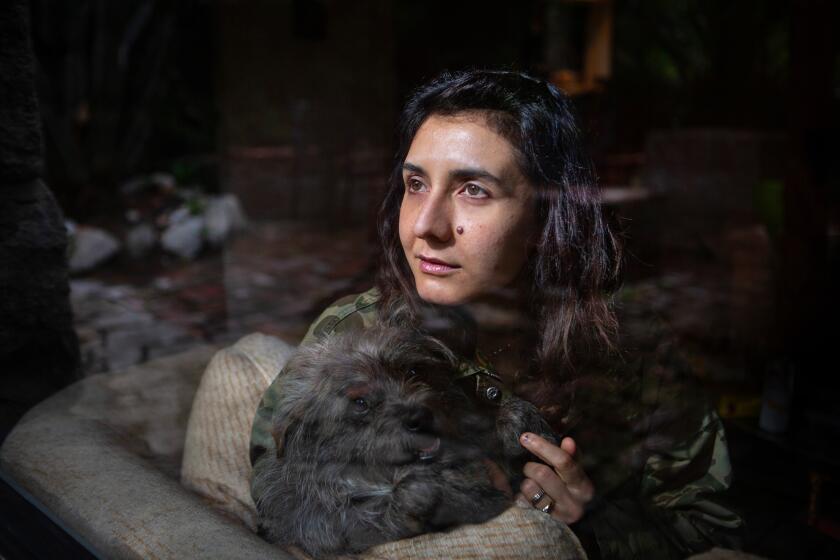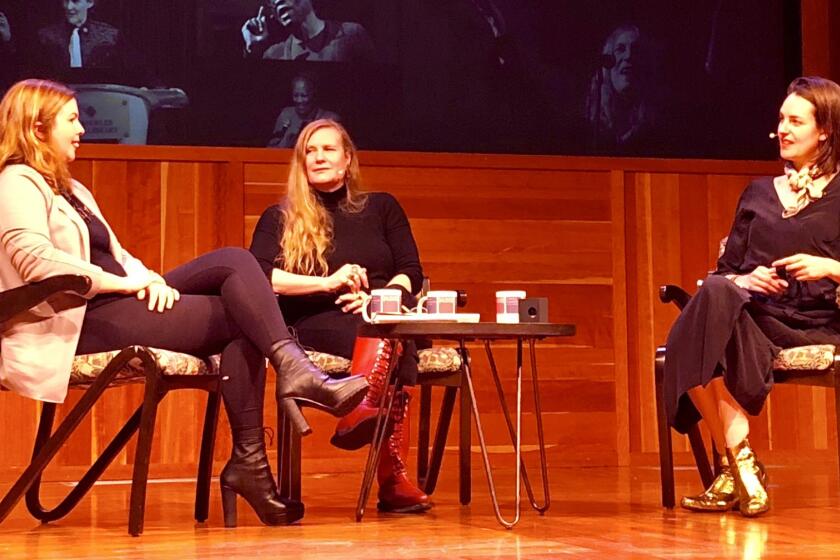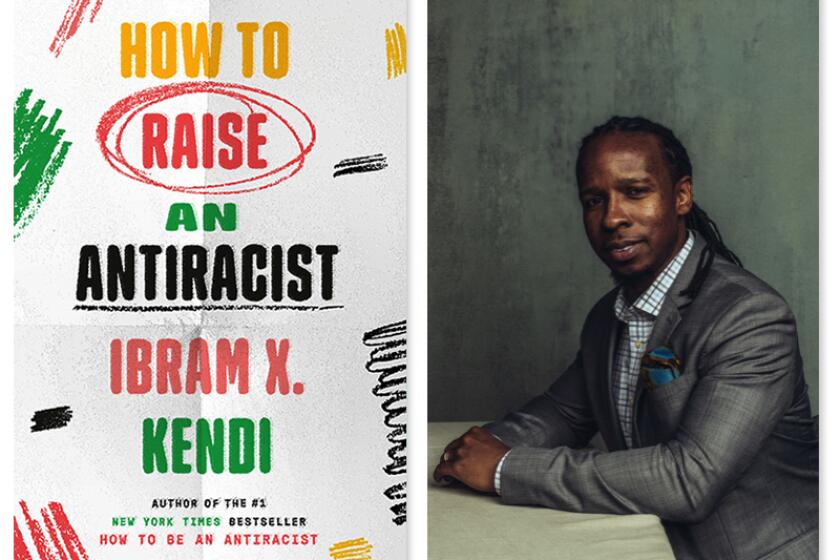10 books to add to your reading list in June
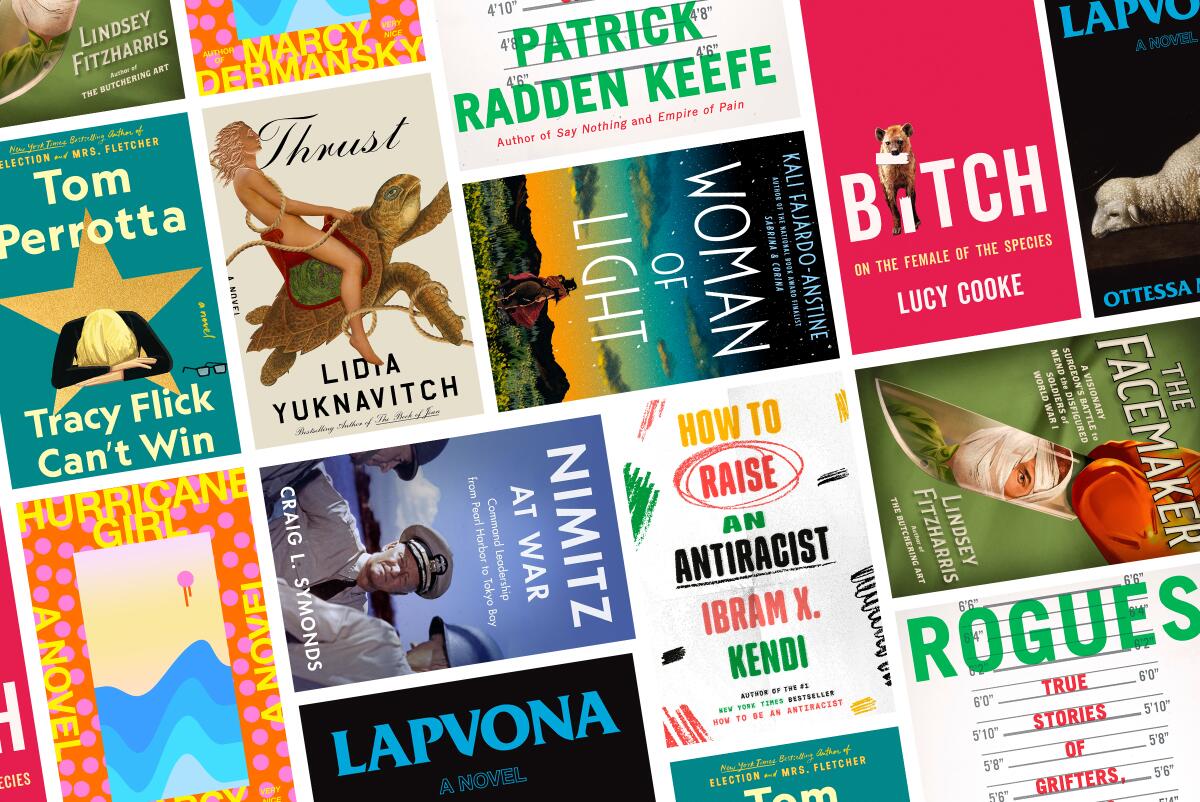
On the Shelf
10 June Books For Your Reading List
If you buy books linked on our site, The Times may earn a commission from Bookshop.org, whose fees support independent bookstores.
Critic Bethanne Patrick recommends 10 promising titles, fiction and nonfiction, to consider for your June list.
Rogues, ornery females and the odd tea-leaf reader populate the pages of this month’s recommended books, which range across settings including a medieval village, a dystopian future and the landscape of two world wars. You might read as a means of escape, but also for fresh surprises. On both fronts, June’s books will not disappoint.
FICTION
Woman of Light
By Kali Fajardo-Anstine
One World: 336 pages, $28
(June 7)
Fajardo-Anstine’s story collection “Sabrina & Corina” was a finalist for a 2020 National Book Award; eager fans didn’t have to wait too long for her debut novel, which takes place in 1930s Denver. Luz “Little Light” Lopez is a tea-leaf reader and laundress whose dream-like memories of her Indigenous family lead to her becoming embroiled in the case of a Mexican man murdered by the police.
Tracy Flick Can’t Win
By Tom Perrotta
Scribner: 320 pages, $27
(June 7)
Perrotta’s much-belated follow-up to his hilarious 1998 novel “Election” (the film starred Reese Witherspoon and Matthew Broderick) picks up with former high school-presidential candidate Tracy Flick as vice principal at the same school, divorced and lonely and gunning for a promotion. As she haplessly misreads the townspeople she looks to for support, short chapters from many perspectives keep readers alternately laughing and gasping.

Hurricane Girl
By Marcy Dermansky
Knopf: 240 pages, $26
(June 14)
Dermansky (“Very Nice,” “The Red Car”) uses economical prose to tell of 30-something Allison Brody, whose East Coast escape from an L.A. producer boyfriend goes pear-shaped when a storm destroys her new North Carolina home. Recovering from an operation to repair a hole in her head, Allison might also be in love with her surgeon. Allison is not OK, but Allison’s story is wickedly funny and wonderfully compact — paradoxically both satisfying and leaving you wanting more.
Celebrated for her novels, occasionally vilified for a persona she can’t control, the author of “Death in Her Hands” is our prophet of loneliness.
Lapvona
By Ottessa Moshfegh
Penguin Press: 320 pages, $27
(June 21)
The edgy novelist’s new book imagines a wholly realistic medieval village rife with plagues and schemes and dastardly characters. She has crafted a trenchant allegory of life in these United States over the past several years, not coincidentally also filled with plagues and schemes and dastardly leaders. Moshfegh makes the same old story new by setting it in the past, wielding her pen like an Arcimboldian brush to sketch in the mechanics of corruption.
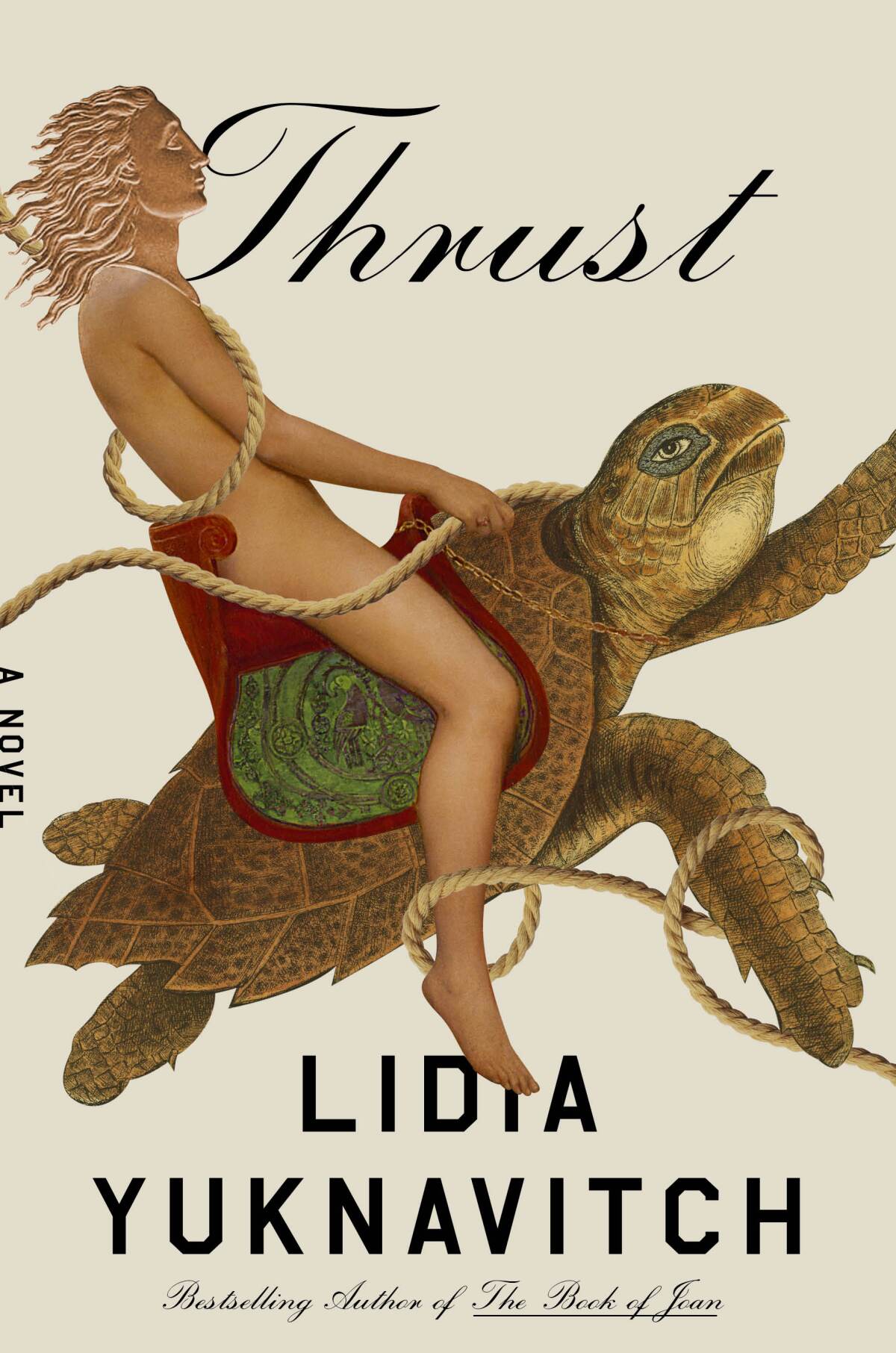
Thrust
By Lidia Yuknavitch
Riverhead Books: 352 pages, $28
(June 28)
Meet Laisvé, who lives in a city called the Brook, its past largely submerged underwater as its inhabitants struggle to survive the present. Laisvé has recently discovered she is a “carrier” who can move between different historical periods. Don’t let the talking box turtle dissuade you, because Yuknavitch is firmly in control: Her powerful, braided fable unites workers of the world across time and space and class to start conceiving of a better world.
“There’s not a choice to be quiet about certain things,” said Amber Tamblyn from the stage at the Mark Taper Auditorium at the Los Angeles Central Library on Tuesday night.
NONFICTION
Nimitz at War: Command Leadership From Pearl Harbor to Tokyo Bay
By Craig L. Symonds
OUP: 496 pages, $30
(June 1)
Those on the West Coast understand (or should) the significance of the War in the Pacific, led by Admiral Chester W. Nimitz during World War II. Symonds, a U.S. Naval Academy professor, creates a full and careful portrait of a man from the Texas interior who went on to command ocean fleets, whose low-key demeanor belied a sharp sense of psychology as well as strategy.
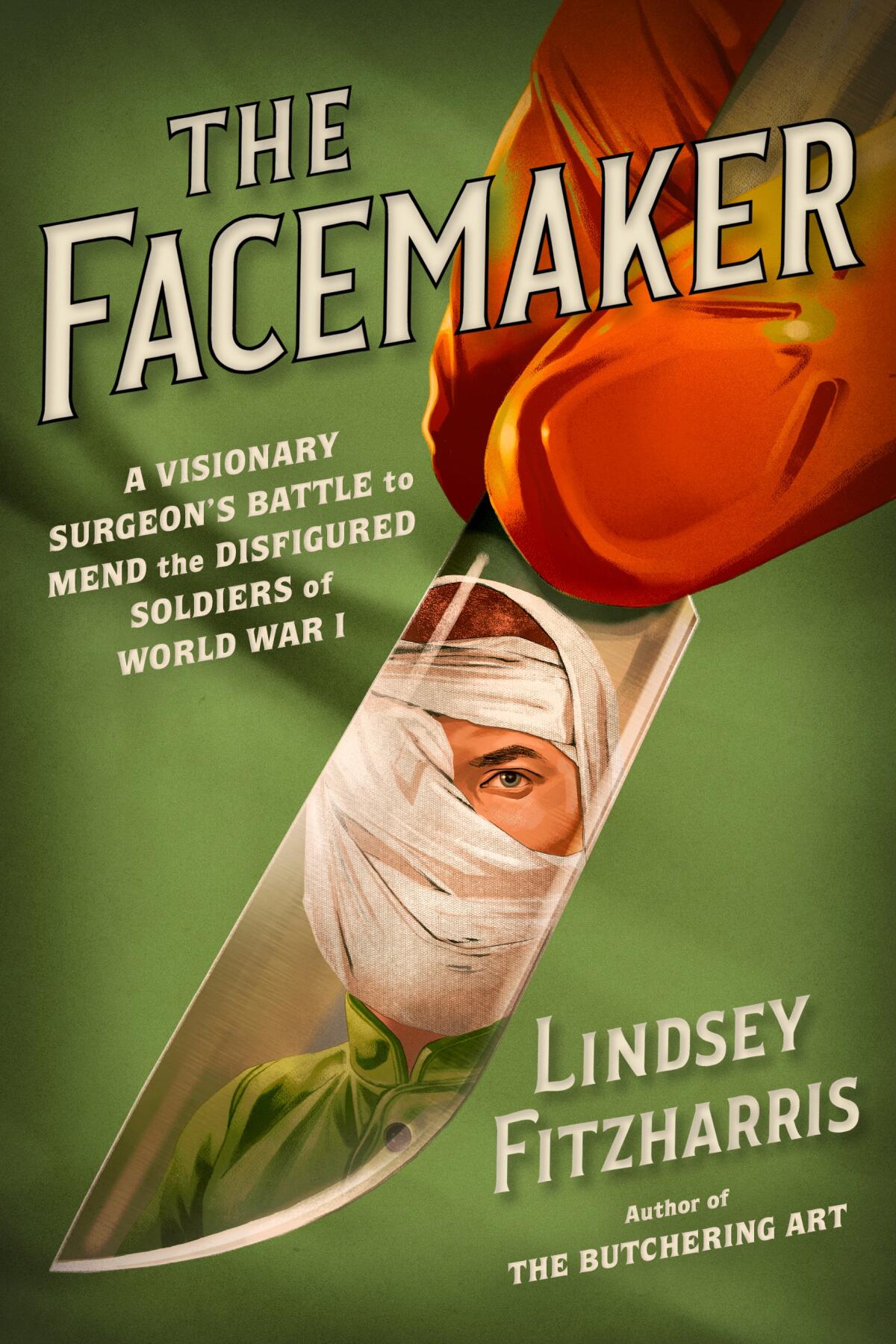
The Facemaker: A Visionary Surgeon’s Battle to Mend the Disfigured Soldiers of World War I
By Lindsey Fitzharris
FSG: 336 pages, $30
(June 7)
Many screen adaptations of World War I stories feature a soldier with a full or partial face mask of painted tin; plastic surgeon Harold Gillies saw the necessity for these but believed he could do better. The New Zealand-born Gillies opened a hospital in England to reconstruct faces using his experience and innovations, in many cases repairing the lives and psyches of veterans in despair.
‘Uncertain Ground’ collects Marine and novelist Phil Klay’s essays on how we redefine citizenship and other fuzzy concepts as a nation forever at war.
Bitch: On the Female of the Species
By Lucy Cooke
Basic Books: 400 pages, $30
(June 14)
When did we decide that female animals (including humans) are the noncompetitive gender? Cooke, a British science journalist, argues persuasively against that assessment in an informative and often cheeky investigation that details mating and more. She also shows what a difference women make to scientific inquiry, asking questions and proposing studies their male colleagues didn’t think of — or didn’t bother with.
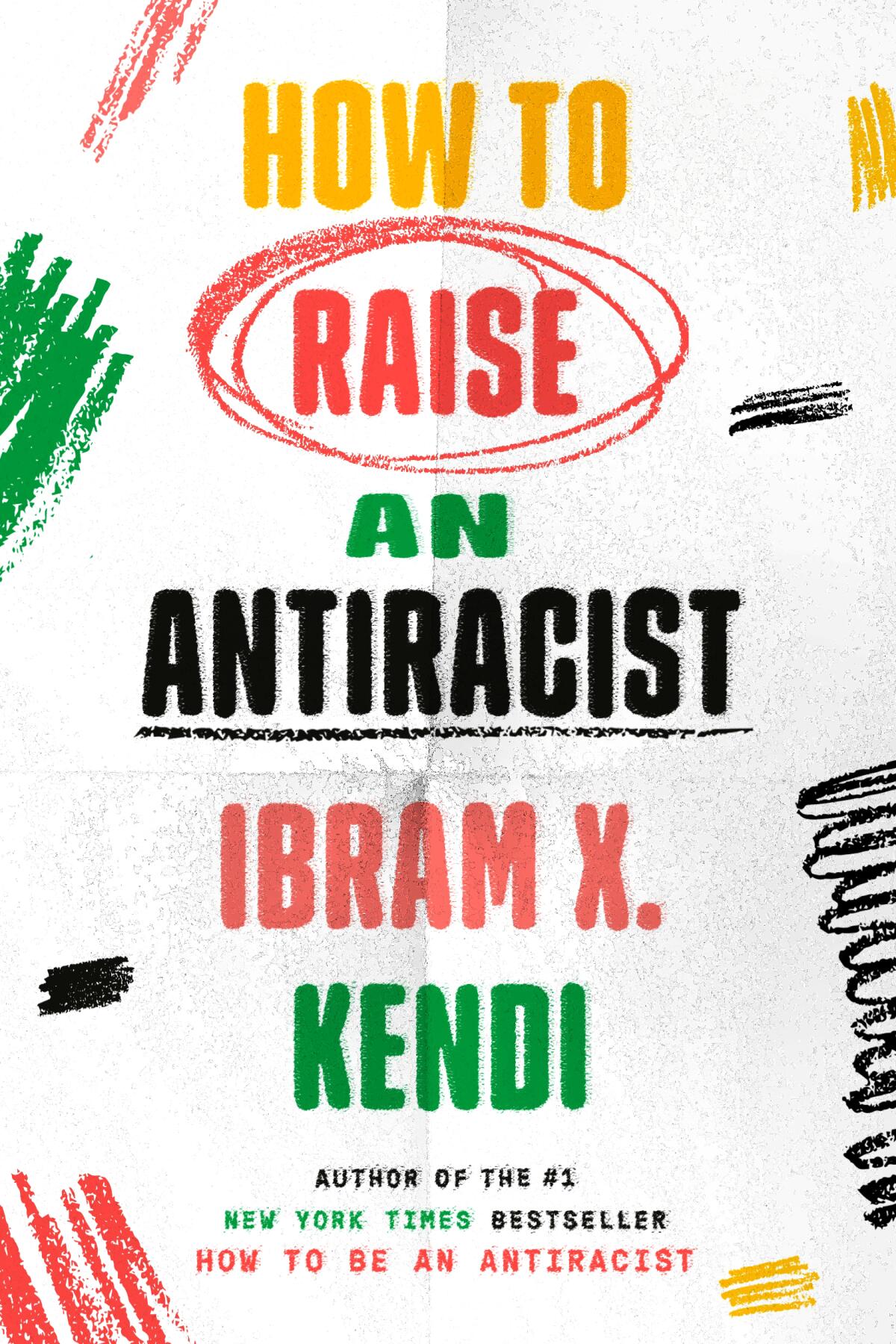
How to Raise an Antiracist
By Ibram X. Kendi
One World: 288 pages, $28
(June 14)
Kendi’s latest, which is the June selection of the L.A. Times Book Club, combines his personal experience as a parent with his scholarly expertise in showing how racism affects every step of a child’s life, even while in utero: His wife, a Black doctor, had many of her valid prenatal concerns dismissed. Kendi emphasizes parents’ crucial role in protecting their children while also seeking social change. Like all his books, this one is accessible to everyone regardless of race or class. Read it.
In his new book, professor Ibram X. Kendi gives advice on how to raise anti-racist kids, and on how talking about race helps us all.
Rogues: True Stories of Drifters, Killers, Rebels and Crooks
By Patrick Radden Keefe
Doubleday: 368 pages, $30
(June 28)
A new book by Keefe (“Empire of Pain,” “Say Nothing”) means drop everything and close the blinds; you’ll be turning pages for hours. “Rogues” is a collection of Keefe’s New Yorker articles about criminals and con artists and more. It’s highly entertaining, of course, but what shines through most brightly is Keefe’s fascination with what makes us human even when we’re at our most imperfect.
More to Read
Sign up for our Book Club newsletter
Get the latest news, events and more from the Los Angeles Times Book Club, and help us get L.A. reading and talking.
You may occasionally receive promotional content from the Los Angeles Times.
